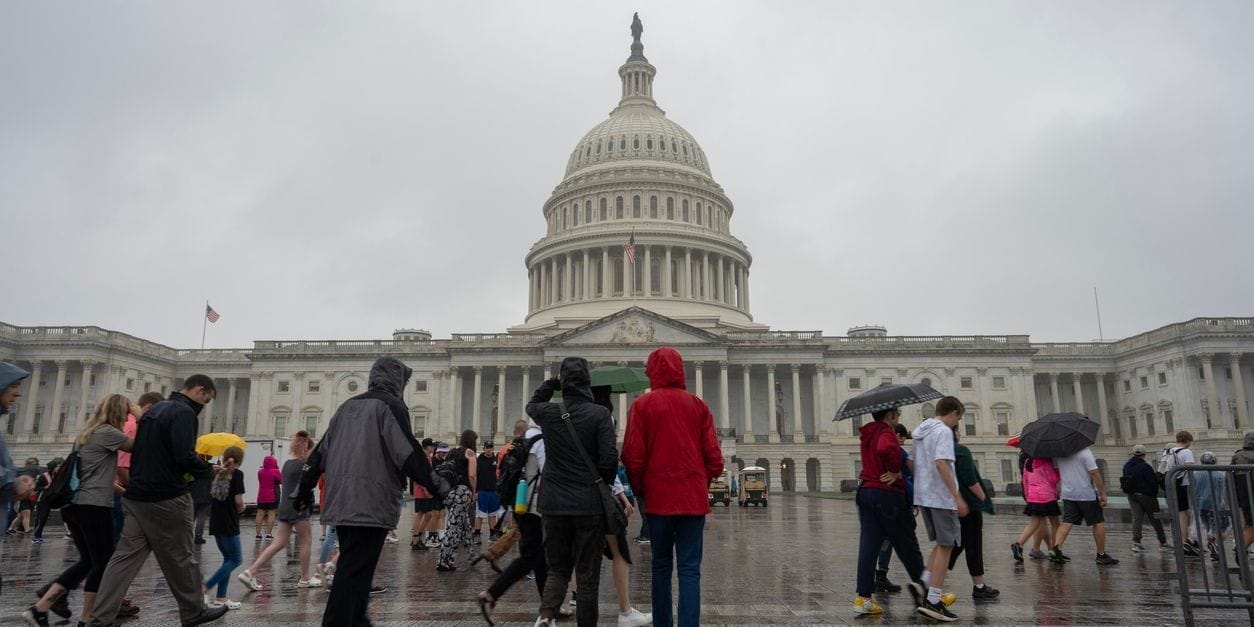Don’t fall for the illusion: Now is the worst time to expand Medicaid

President Trump’s landmark reforms in the One, Big, Beautiful Bill crack down on Medicaid fraud, protecting the truly needy and ensuring that able-bodied adults must work, train, or volunteer to receive temporary Medicaid benefits.
But like one of those optical illusions where two people can look at the same picture and see something completely different, some at the state level are misreading this moment. Instead of recognizing a win for taxpayers and the truly needy, they see an opening to push the 10 remaining “holdout states” into expanding Medicaid to able-bodied adults.
Caving into this pressure to expand Medicaid would be a grave mistake. Unlike optical illusions, the correct choice here is objective. We now have a decade of data on the impact of expanding Medicaid in 40 states and D.C., and the evidence is clear—in every state that has attempted the experiment, Medicaid expansion has been a failure.
Medicaid expansion hurts taxpayers and state budgets
In 2010, the Obama administration sold states a dream: Offer Medicaid to able-bodied adults, and Washington would foot the bill. But the “free money” was a trap. Enrollment spiked far beyond projections, and costs soared, siphoning taxpayer resources away from critical state priorities, such as education, roads, and law enforcement.
In California, state officials predicted that slightly more than 900,000 able-bodied adults would enroll when the state expanded Medicaid in 2014, at a cost of nearly $55 billion. By 2023, more than 5.3 million were enrolled, costing more than $203 billion.
Illinois predicted 342,000 enrollees and ended up with more than one million, costing taxpayers $43 billion. Louisiana expected to pay $9.5 billion by 2023 for expansion, and ended up with an invoice of nearly $29 billion.
In West Virginia, more than 35 percent of the state’s population is now on Medicaid, more than double the estimate of the governor’s office at the time of expansion. These aren’t miscalculations—these are meltdowns.
A new study from the Foundation for Government Accountability found that Medicaid accounts for roughly 30 percent of state budgets nationwide—nearly one in every three dollars states spend. And in some states, that number is creeping close to 40 percent and continuing to grow. As states are required to balance their budgets every year, taxpayers are right to worry: What services are we sacrificing to feed this parasitic program?
Medicaid expansion hurts patients and the truly needy
Perhaps the most heartbreaking reality of Medicaid expansion is the direct harm it inflicts on our most vulnerable neighbors. Expansion takes resources away from those who truly need a safety net, including the elderly and children with disabilities. It also forces privately insured patients onto the Medicaid rolls, exacerbating the shortage of benefits for those with a true—and often urgent—need.
As of 2024, more than 700,000 patients nationwide were languishing on Medicaid waiting lists. These include children and adults with severe intellectual disabilities, traumatic brain injuries, spinal cord injuries, mental illnesses, and other debilitating conditions. Tens of thousands of them died waiting, while millions of able-bodied adults skipped the line.
Medicaid expansion doesn’t lift people up; it drags states down.
This includes nearly three million people who have already been caught double-dipping Medicaid benefits in multiple states or enrolling in ObamaCare on top of Medicaid benefits.
It also includes $6.1 billion in federal funds allocated for “emergency” Medicaid for illegal aliens, of which nearly 75 percent went to California, where the Newsom administration was busted for improperly claiming millions of those dollars for illegal aliens’ non-emergency benefits. Imagine the American lives that could have been saved if such rampant fraud were not taking place.
Now is the absolute worst time to expand Medicaid
The work requirements in the One, Big, Beautiful Bill are a positive step toward restoring accountability in expansion states that have been overwhelmed by waste, fraud, and exploding costs. That’s real progress—and worth celebrating.
But let’s be clear: Medicaid expansion still drains state budgets and diverts limited resources away from the truly needy. For the holdout states watching the rest of the country struggle to stay afloat under this failed experiment, joining them now—knowing what we know—would be utter madness.
Especially considering that under the One, Big, Beautiful Bill, expansion states will soon feel even more pain. Their share of Medicaid costs will rise as the bill tightens the rules on provider taxes—a trick that has historically allowed states to draw down additional federal matching funds at the expense of federal taxpayers.
Additionally, the law now requires states to recheck eligibility for expansion adults at least every six months. If a state makes improper payments with an error rate above three percent, it will lose significant federal funding.
This is a time for holdout states to hold the line, and for states that fell for the illusion of Medicaid expansion to start looking for an exit ramp. The lesson of the past decade is unmistakable: Medicaid expansion doesn’t lift people up; it drags states down. Based on the data, there’s simply no other way of looking at it.
Haley Holik is the deputy policy director at the Foundation for Government Accountability.



